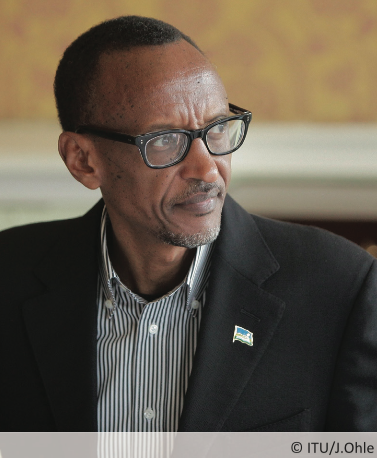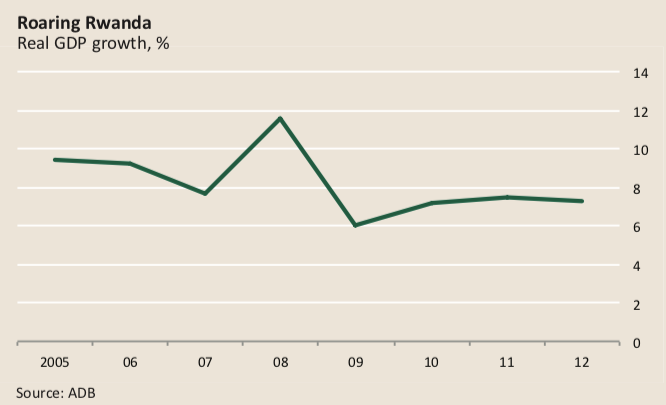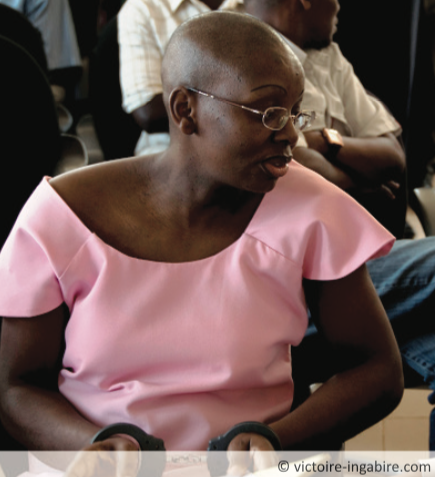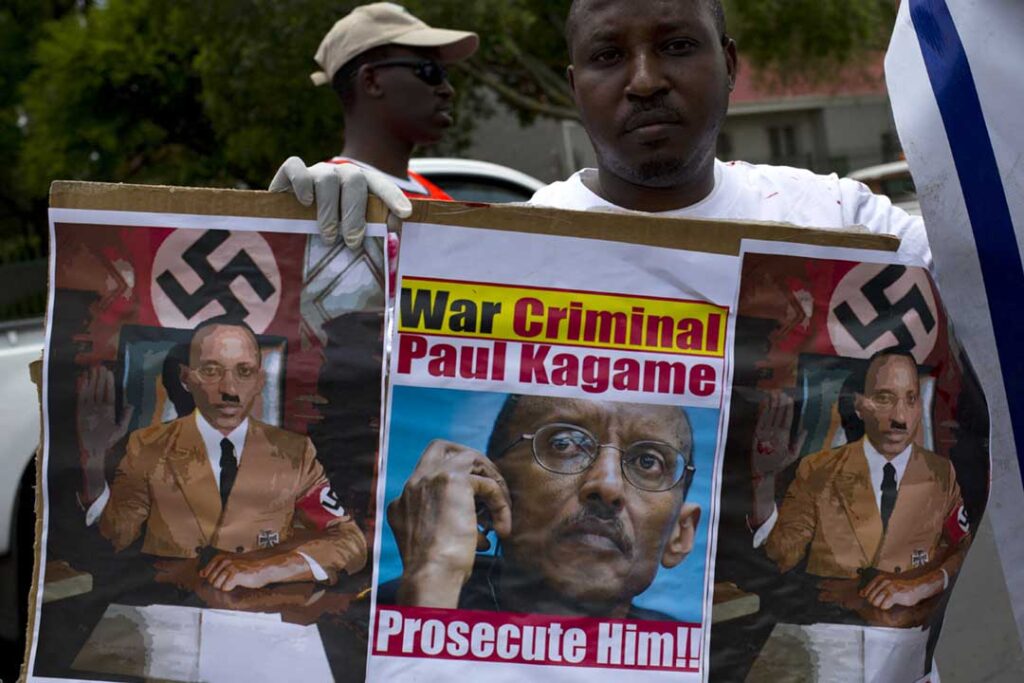Rwanda’s dilemma
Economic and social progress has come at a cost to political freedom
While Rwanda has a multi-party system, in practice it is a one-party state because the ruling Rwandan Patriotic Front (RPF), led by President Paul Kagame, tolerates little public dissent.
The RPF was originally a political-military movement. It was created in neighbouring Uganda in 1987 by Rwandan Tutsi refugees who had fled there after the 1959 overthrow of the Tutsi-led monarchy.While most of its initial members were Tutsi, the RPF is not a Tutsi party. It has Hutu members and its aim is to establish a non-ethnic regime, according its political programme released in 2008.
The 1994 genocide ended when the RPF’s military wing, the Rwandan Patriotic Army (RPA), defeated the old Rwandan army (known by its initials in French, FAR) which perpetrated the genocide or provided a shield to the militias. Mr Kagame was the military commander who led the RPA to victory in July 1994.
Of Rwanda’s 11 registered parties, all but two—the Social Party Imberakuri (meaning “social party” in Kinyarwanda) and the Democratic Green Party of Rwanda—have joined the RPF-led ruling coalition. These parties both formed relatively recently: the Social Party in 2008 and the Democratic Green Party in 2009. Their political influence is minimal.
Historical reasons explain this one-sided political system. Many Rwandans identify the multi-party system, which prevailed between 1990 and 1994, with the 1994 genocide of almost 1m Tutsis and politically moderate Hutus. Before this mass murder, party ideology was closely connected to ethnicity.

Since Mr Kagame has taken over, he has banned the mention of ethnicity, which appeared on identification documents under the previous regime and facilitated the genocide. Some critics claim he uses this prohibition to quash dissent and free speech in the name of promoting ethnic cohesion.
Rwanda has achieved remarkable economic and social progress in the last 20 years. Since 2005, the Rwandan GDP has grown at an average of 8% a year, according to the African Development Bank (ADB). In 2012 the rate was 7.7% and it was expected to remain above 7% in 2014.

Rwanda is perceived as the fourth least corrupt country in Africa after Botswana, Cape Verde and Mauritius, according Transparency International, the Berlin-based watchdog.
Mortality of children under the age of five decreased from 103 to 54 per 100,000 between 2008 and 2011, according to UN figures. Primary school enrolment increased from 86.6% in 2006 to 91.7% in 2011. Literacy among 15-24 year olds rose from 76.8% in 2006 to 83.7% in 2011.
The proportion of the population living in poverty decreased substantially from 78% to 45% between 1994 and 2012, according to the latest World Bank figures.
Though Rwanda has made much progress it has been at the cost of free speech, association and other basic human rights.
In the most recent presidential elections, in 2010, Mr Kagame barely had any competition, running against three of his political allies. He won93% of the vote in the August 2010 poll, with a voter turnout of 97.5%, according to the Stockholm-based Institute for Democracy and Electoral Assistance.
The Rwandan opposition sits in an uncomfortable—and sometimes dangerous—position. André Kagwa Rwisereka, vice-chairman of the opposition Democratic Green Party, was found partially beheaded in July 2010, a month before the elections. No one was ever prosecuted for the crime.
Bernard Ntaganda, leader of the opposition Social Party Imberakuri was arrested in 2010 and charged with planning “unauthorised” demonstrations and “divisionism”, making public speeches criticising government policies. Sentenced in 2011 to four years in prison, Mr Ntaganda was released in June 2014.
The beheading and arrest, as well as the incarceration of other dissidents and journalists are a clear message to anyone who might challenge the government.The government began cracking down on the independent press in the late 2000s in advance of presidential elections, according to an April 2014 report from the Committee to Protect Journalists, the New York-based NGO.
In April 2014 the Paris-based Reporters Without Borders organisation posted on its website that it was “worried” by the arrest of radio journalist Cassien Ntamuhanga. It mentioned that two other journalists had fled abroad and that a news website has been hacked. “While apparently not linked, these events have helped to fuel a climate of fear and self-censorship among media personnel”, according to watchdog’s website.
Several leaders of unregistered opposition parties are in prison. Deogratias Mushayidi, leader of the People’s Democratic Pact-Imanzi (PDP-Imanzi), is serving a life sentence for his alleged involvement in grenade attacks that killed ten people in Kigali in 2010.
Victoire Ingabire Umohoza, president of the unregistered United Democratic Forces (FDU-Inkingi, or “united forces” in Kinyarwanda) was sentenced in 2010 to 15 years in prison for allegedly transferring money to the Democratic Forces for the Liberation of Rwanda (or FDLR, its initials in French), a Hutu armed group established in the Democratic Republic of Congo after the 1994 genocide.

Ms Ingabire has been accused in Rwanda of genocide denial because in 2010 she asked why the victims of the “Hutu genocide” had not been recognised. Genocide denial is against the law in Rwanda and is punishable by imprisonment.
The squelching of debate and free speech in Rwanda has had the opposite effect, making the social reconciliation process unstable, wrote Maina Kiai, the UN’s special rapporteur on the right to free assembly, in a June report.
While Mr Kiai commended Rwanda for its “progress in the areas of good governance, including rule of law and institution-building, and in ensuring stability and security,” he noted that the country’s approach to achieving reconciliation is undermined by the limited space given to dissenting voices. “Several interlocutors emphasised that Rwanda favours a political order based on so-called ‘consensus,’” Mr Kiai wrote. “But this consensus is led by the ruling party and, as a result, discourages public criticism and dissent.”
The prevailing political mood in Rwanda is so closed that many Rwandan politicians have gone abroad to create political organisations. One of the most active of these is the Rwandan National Congress (RNC), formed in 2010 in Bethesda, Maryland by former close collaborators of Mr Kagame, including Theogene Rudasingwa, the former RPF secretary-general.
In a joint meeting held with the FDU-Inkingiin Johannesburg in 2013, the RNC called for the release of “prisoners of conscience” and the opening of political space. The RNC does not provide estimates on how many such prisoners are held in Rwanda.
The Coalition of Political Parties for Change (or CDC, its initials in French) is the most recent opposition group, formed in May 2014 in Brussels. The CDC brings together four groups: the Rwanda Dream Initiative, the party of Faustin Twagiramungu, a former prime minister; the FDLR; the Rwandan Democratic Union; and Mr Ntaganda’s wing of the PS Imberakuri.
Exiled politicians have also been targets of violence. On May 16th 1998, Rwanda’s former minister of the interior, Seth Sendashonga, was shot dead in Nairobi. His murder was “likely to be directly connected to his frequent criticisms…of human rights violations by the current government and security forces in Rwanda,” according to a 1998 Amnesty International report.
In June 2010 and September 2011 another RNC leader, Gen Faustin Kayumba Nyamwasa escaped two assassination attempts in South Africa. Gen Nyamwasa may have been considering military actions with the FDLR against Rwanda, suggested a 2010 UN report.
More recently, on December 31st 2013, one of the founders of the RNC, the former Rwandan military intelligence chief Col Patrick Karegeya, was murdered in a plush Johannesburg hotel. No one has been arrested.
While it continues on the road of economic and social progress, it is desirable for Rwanda to have a more open democratic system. This depends on creating a model that does not question the genocide—as the FDLR does—and also proposing an alternative viable economic and social programme.
Even if such an opposition could operate freely, it would have trouble defeating the RPF. Mr Kagame’s party has improved the lives of Rwandan citizens. They see the RPF as the party that guarantees stability— even if the price they must pay is a de factopolice state.



